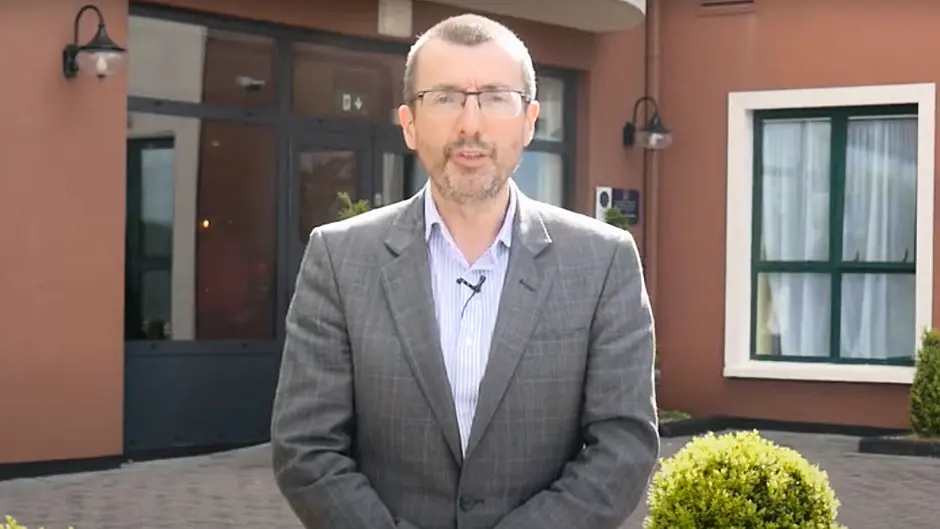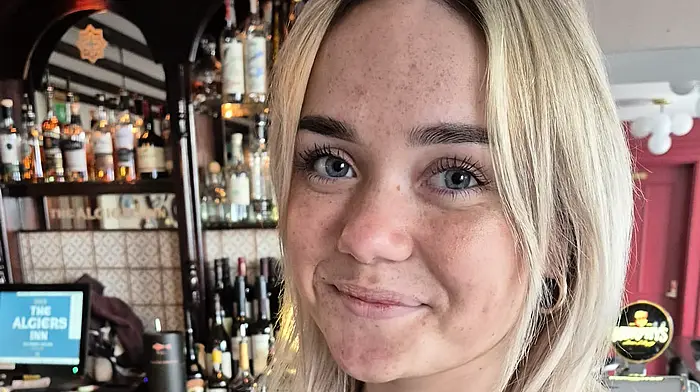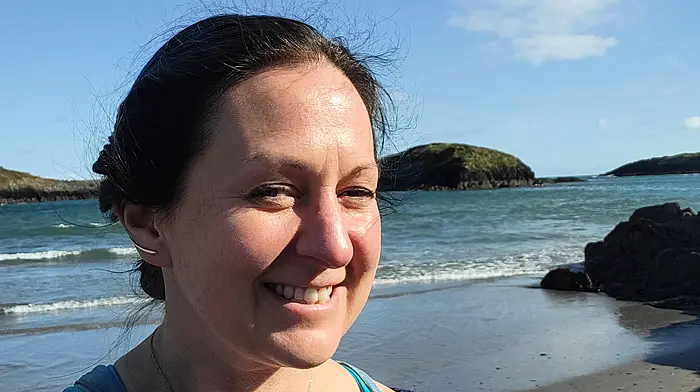HOTELS across West Cork have said spiralling insurance premiums are causing a crisis in an industry which is attempting to recover after two years of Covid.
They say that as most insurance companies have now left the Irish market, it’s a ‘closed shop’ when it comes to getting cover. They have also criticised the government’s lack of action on planned reforms of the industry. One hotelier described the current situation as ‘out of control.’
David Henry of the Clonakilty Park said the hotel has had to fork out an extra €27,000 for its premium this year, and has been penalised for projecting increased sales as the industry recovers after two years of slow growth.
‘The leisure industry is considered high risk and a dirty word within the insurance industry and, when there is no competition in the market, it’s a case of take it or leave it,’ said David.
Neil Grant of the Celtic Ross Hotel in Rosscarbery agreed, and added that he believed that the insurance situation is now ‘out of control’. He said the annual insurance costs for the hotel for 2022 have risen by €60,000 since 2019.
‘Any narrative coming from the government that insurance reform is being tackled is not happening in any shape or form,’ he said. ‘There is no element of the insurance space improving and as a business we are paying more money than ever,’ said Neil, who added that payouts for legal claims are ‘wacky and off the charts.’
Barry Looney of the West Cork Hotel in Skibbereen said his premiums are also on the rise and that promised regulation has been ‘slow’ to come.
‘You have a lot of insurance companies running from hospitality and it’s basically a closed shop when it comes to shopping around,’ said Barry.
Our hotels are fed up with crippling insurance costs
Despite an ambitious Fáilte Ireland plan for West Cork highlighting the importance of leisure and outdoor activities, many tourism businesses – and particularly our hotels – are finding it increasingly difficult to get affordable insurance cover
SPIRALLING insurance premiums for leisure businesses and ‘wacky’ payout claims are threatening tourism’s reopening in West Cork.
One hotelier told The Southern Star that the leisure industry is now considered ‘high risk’ and a ‘dirty word’ within the insurance industry.
Hotels appear to be bearing the brunt of these ever-increasing premiums. David Henry, general manager of the Clonakilty Park Hotel, said, the hotel has had to fork out an extra €27,000 for its premium this year, but also now finds itself being penalised for projecting increased sales as the industry recovers following two years of Covid.
Last year, The Southern Star highlighted the problems of crippling insurance hikes in the hotel industry. It is apparent, now, that the situation has not improved.
Back then, David said he believed that there is no competition in the market and that insurance companies are almost operating a type of ‘cartel’. He now feels that ‘leisure’ is considered a dirty word in the insurance industry and that these ventures are classed ‘high risk’.
‘In the last two years, due to Covid, our sales would have decreased by anything from 60 to 70% on 2019, but when it came to getting premiums for 2020 and 2021, insurance companies were saying that despite sales being down, we were still in a ‘high risk’ industry and that they needed a minimum spend, so they were still charging us between €62,000 to €68,000 a year for insurance,’ said David.
These figures are just for the hotel and leisure centre end of the business, he pointed out. ‘We have a separate policy for the adjoining cinema and adventure centre combined,’ he added. ‘That was €35,000 last year, and the policy is due shortly, so no doubt we will see a hike in that one, too.’
Now that the industry is getting back on its feet, David said that hotels are being penalised for re-forecasting their sales back to 2019 levels.
‘They are saying your sales have doubled on 2020 and 2021, and therefore you are at higher risk, and now your premium has to increase. Whatever your sales are, they then multiply it by a factor to come up with the premium – they have pulled a sly one in that regard.’
He pointed out that his insurance company didn’t afford him the same luxury when sales were almost halved during Covid and they adopted the attitude of a ‘minimum spend’.
Over the past five years, the hotel has had one claim where over €20,000 was paid out, yet they paid over €300,000 for insurance over the last five years.
‘I’m still classed as being in the high risk category, and my insurance has gone up 36% from €68,000 last year, to €95,000 for this year. There is just no competition in the market. Nothing has changed in the past year.’
David said at best there are only two or three companies that will quote businesses in the leisure industry and that it’s a case of ‘take it or leave it’. So, his premium jumped from €60,000 in 2019 to €95,000 this year.
David is also critical of his local TDs. Despite their promises to help him, he believes they are powerless. ‘It’s a mountain to climb,’ he said.
‘It’s the same thing setting up steering committees and promising things, when in fact there’s too much talk and no action.’
Neil Grant, manager of The Celtic Ross Hotel in Rosscarbery, said the insurance situation is ‘out of control’. He said that any narrative coming from the government that insurance reform is being tackled ‘is not happening in any shape or form.’
The insurance costs for the hotel this year have jumped by €60,000 since 2019.
‘There is no element of the insurance space that is improving, and as a business, we are paying more money than ever.
‘ It’s going up incrementally and there is zero evidence of insurance reform being tackled or the benefits being passed on,’ Neil told The Southern Star.
‘Insurance has always been a problem, but technically it’s worse the last three years, rather than better. We are paying on average increase of €36,000 per year more for our premium for the period 2020-2022, compared to the period 2017-2019, even with Covid curtailing trade for the past two years.
‘It’s an absolute scandal. My insurance has increased on the basis of one claim. There is just no competition and the payouts in Ireland are so wacky and off the charts that no other companies want to enter the market place. The legal profession is a problem here, too, and the government has failed to rebalance the duty of care,’ said a clearly frustrated Mr Grant.
Neil has contacted all three West Cork TDs on the issue and has been told by FF TD Christopher O’Sullivan that he is organising a meeting with Minister Sean Fleming.
‘The Personal Injuries Board has reported that payouts and claims have reduced substantially by 40% to 50%, but yet, during that time my insurance has increased by 30%. My premiums for 2017, 2018 and 2019 were more or less the same and since 2017 I’ve had one claim – does that say I’m a risky business?’
‘You get insurance to protect you if something goes wrong, and surely they should be building that in if you have a claim. I’ve had one since 2017 but somehow that justifies me paying €30,000 on average extra a year!’
Neil said that technically he should be receiving a discount on his premium next year, which will be the acid test.
Barry Looney of the West Cork Hotel in Skibbereen said insurance for them is also an issue and he has seen no real change in the insurance costs.
‘Premiums are on the rise, claims are on the decrease, but regulation is slow. You also have a lot of companies running from hospitality and it’s a closed shop. It’s a case of take it or leave it when it comes to insurance premiums – it’s kind of a monopoly,’ said Mr Looney.
‘A lot of the businesses like ourselves didn’t get the BI (Business Interruption) during the pandemic, despite paying into this premium for business interruption.
‘All along we were being advised to take this in the event of anything happening, but it was declared null and void.’
Barry Looney has been with the same company for a few years and said hotels are being hit hard due to the 24/7 nature of the business, as well functions being held there.
‘We have no choice when it comes to insurance and would have always taken BI in our premium, but the wording in those contracts has changed now to include events like pandemics.’
At their most recent conference in March, the Irish Hotel Federation (IFH) raised a motion calling for urgent action to address the spiralling hotel insurance costs, which they say have risen an average of 20% year-on-year. IHF president Elaine Fitzgerald Kane said insurance costs were one of the most serious challenges facing the sector, with a third of properties – 35% – experiencing difficulty in securing insurance cover.
She called on the government to expedite legislative reform of the Occupiers Liability Act, to overhaul the Personal Injuries Assessment Board (PIAB) and to accelerate the Department of Justice economic review on addressing excessive legal fees.
She also said more competition was badly needed in the insurance market.
‘Notwithstanding the excessively high cost of commercial insurance, we have an ever-shrinking pool of insurers in our market which is making it even more challenging to obtain sufficient cover.
‘The market is clearly not functioning properly and the government must do everything in its power to promote and attract increased competition and new entrants into the Irish market,’ said Ms Fitzgerald Kane.
Meanwhile, David Henry said that that unfortunately in the hotel industry, everything is going ‘up and up’ which means they have to increase their prices, which means they will become ‘very uncompetitive’.
‘For example, our linen costs have increased by 35% over the past few months, and rising inflation is causing this and that increase is going to add in excess of €50,000 extra to our bottom line, which in some parts has to be passed onto the customer.’
David feels that it suits the insurance industry to class them as ‘high risk’ as it justifies them charging hotels more for their insurance premiums.
He is also critical of the excess they would have to pay if a claim is brought against them. The hotel has had just once claim over the past five years.
‘There is an excess on every single claim from our insurance policy and if someone claims in the hotel, we have to pay the first €7,500 of that claim.
‘So it’s €95,000 for the luxury of having insurance, but if there is a claim, we pay the first €7,500 of that claim to the insurance company and we have no say about whether we fight it or not.’
GETTING COVER FOR OUTDOOR ACTIVITIES IS AN ADVENTURE IN ITSELF
LAST week, The Southern Star reported on Fáilte Ireland’s ambitious five-year plan for West Cork tourism.
A large element of the plan was a focus on outdoor and activity holidays. But those operating such businesses are dubious about the future, unless the government gets its act together on spiralling insurance premiums.
And for some activities, business owners can no longer get any cover at all. Geoff Wycherley of Smuggler’s Cove in Rosscarbery – who opened their popular tubing park almost a year ago – said that while insurance has gone crazy over the past number of years, it has stabilised somewhat now.
‘It’s high, but it’s a manageable high at the moment, and it didn’t go up from last year. But it had taken two massive jumps in the two years before that,’ said Geoff.
‘Arachas are our broker and we’re insured through the PALI (Play Activity and Leisure Ireland) scheme which we find very beneficial. They set up a scheme where leisure centres pooled together to get manageable insurance and this would be predominantly soft play indoor leisure centres, and they take outdoor leisure centres like ourselves.’
He is optimistic, too, of a busy summer season ahead.
‘People will be a bit more easy about getting out there and let’s hope we have a good fine summer.’
 The zorbing activity in Funmanway is one of the casualties of the insurance crisis, though owner James Duggan hopes he will be able to get cover again.
The zorbing activity in Funmanway is one of the casualties of the insurance crisis, though owner James Duggan hopes he will be able to get cover again.
In Dunmanway, James Duggan of Funmanway said the cost of insuring his business is expensive enough and they can only get insured by the same broker, Arachas, which is facilitated by the representative body, Ireland’s Association for Adventure Tourism (IAAT). Arachas specialises in providing innovative and business-critical insurance schemes for groups or businesses that find it hard to source fairly-priced cover. ‘Arachas were the only company who would quote me last year and that was because I was a member of the IATT. I even rang around some insurance companies in Spain and Portugal and they would insure me if I was on mainland Europe, but not in Ireland,’ said James.
‘I would have been quoted €5,600 before I joined Arachas but now I’m paying €4,200 which is still expensive, but better than the previous quote.’ When he first opened the business 10 years ago, he was paying just €1,800 for his insurance which covered all activities, including zorbing.
However, James is now unable to get insurance for his hugely popular zorbing element of Funmanway, but he hopes to re-open it in the near future.
‘Zorbing falls under ‘inflatables’, which includes bouncy castles and bubble soccer and there seemed to have been huge claims on these activities over the past number of years. To insure zorbing I would have to fork out more.’
Another member of IATT is Jim Kennedy of Atlantic Sea Kayaking, who said they are making great strides towards group insurance, something which he hopes to avail of down the line. ‘I changed brokers last year and am privately insured at the moment, so the premium increased a bit. It is getting harder to get insurance for any adventure tourism business and we are in business 30 years with no claims,’ said Jim.
‘My current insurance policy doesn’t allow us to take under 18s out for nighttime kayaking, but it’s more an adult type event, so it doesn’t really affect us.’
Jim feels confident about the work that IAAT is undertaking and said the membership has significantly increased over the past year giving them ‘strength in numbers’.
‘It’s gone from about 80 members to now over 300, and chief executive Brendan Kenny is doing great work on our behalf.’







